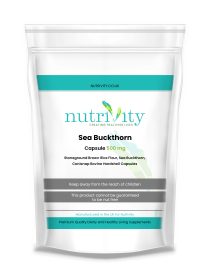What are the disadvantages of sea buckthorn?
Unveiling the Drawbacks of Sea Buckthorn: Exploring its Limitations and Considerations
Unveiling the Unseen: Disadvantages of Sea Buckthorn You Should Know
Introduction:
Sea buckthorn, also known as Hippophae rhamnoides, is a small orange berry that has gained significant popularity in recent years due to its numerous health benefits. Rich in vitamins, minerals, and antioxidants, sea buckthorn has been celebrated for its potential to improve skin health, boost immunity, and support overall well-being. However, it is important to consider that like any other natural product, sea buckthorn also has its disadvantages and limitations. In this article, we will delve into the drawbacks associated with sea buckthorn, shedding light on its potential side effects and considerations.
Sea Buckthorn
High Caloric Content:
One of the main disadvantages of sea buckthorn is its relatively high caloric content. While the berries offer a range of health benefits, they are also rich in calories. Individuals aiming to maintain or lose weight may need to exercise caution when consuming sea buckthorn products, as excessive calorie intake can hinder their goals.
Allergic Reactions:
Sea buckthorn berries and their derivatives can potentially cause allergic reactions in some individuals. These reactions may manifest as skin rashes, itching, or gastrointestinal distress. It is crucial for individuals with known allergies or sensitivities to consult with a healthcare professional before incorporating sea buckthorn into their diet or skincare regimen.
Interactions with Medications:
Sea buckthorn may interact with certain medications, potentially affecting their efficacy or causing unwanted side effects. For instance, sea buckthorn oil may interfere with blood clotting medications or drugs that lower blood pressure. It is vital for individuals taking prescription medications to consult with their healthcare provider before using sea buckthorn products to avoid any potential adverse interactions.
Staining and Discoloration:
Sea buckthorn oil has a vibrant orange color, which can stain surfaces, fabrics, and even the skin. While this may not be a health concern, it can be an inconvenience, particularly when it comes to handling and application. Care should be taken to avoid staining valuable items or clothing when using sea buckthorn oil.
Limited Availability and High Cost:
Sea buckthorn is not as widely available as other fruits and supplements. Which can make it challenging to obtain in certain regions. Additionally, due to the limited supply and labor-intensive harvesting process, sea buckthorn products can be relatively expensive compared to other natural remedies or supplements.
The Bitter Truth Behind Sea Buckthorn’s Glow:
In the quest for superfoods, sea buckthorn has emerged as a star, celebrated for its myriad health benefits. However, it’s crucial to navigate beyond the dazzling positives and delve into the potential drawbacks that may lurk beneath the surface.
Tangling with the Thorns – A Cautionary Tale:
While sea buckthorn is celebrated for its nutrient-rich profile, its thorny disposition can pose challenges during cultivation and harvesting. Farmers and workers need to exercise caution to avoid injuries, impacting both human safety and operational efficiency.
A Palate Predicament – The Acquired Taste:
Sea buckthorn’s distinctive taste, a blend of tangy and bitter notes, may not be to everyone’s liking. The acquired taste can be a deterrent for those looking for a more palatable dietary supplement. It’s essential to consider individual preferences before incorporating sea buckthorn into your daily routine.
Soil Sensitivity – Not Every Ground Is Home:
Sea buckthorn is particular about its habitat, thriving in well-drained, sandy soil. This selectivity can limit its cultivation to specific regions, affecting the availability and affordability of sea buckthorn products for consumers in other areas.
Price Peaks – A Costly Elixir:
The process of harvesting and extracting sea buckthorn oil is labor-intensive, contributing to its higher price point compared to other health supplements. While the benefits may justify the cost for some, budget-conscious consumers may find it challenging to embrace sea buckthorn as a regular addition to their wellness routine.
Conclusion:
Sea buckthorn offers a range of health benefits. It is essential to consider its potential drawbacks before incorporating it into your diet or skincare routine. The high caloric content, potential allergic reactions, interactions with medications, staining properties, and limited availability are all factors that should be taken into account. As with any natural product, consulting with a healthcare professional is advisable to ensure that sea buckthorn is suitable for your specific needs and circumstances.
While sea buckthorn boasts an impressive array of health benefits, it’s crucial to weigh the disadvantages before diving headfirst into its consumption. A nuanced understanding of both sides ensures informed choices, aligning your wellness journey with your preferences and priorities.
- Disadvantages of sea buckthorn
- Limitations of sea buckthorn
- Potential side effects of sea buckthorn
- Allergic reactions to sea buckthorn
- Interactions with medications and sea buckthorn
- Staining properties of sea buckthorn
- Limited availability of sea buckthorn
- High cost of sea buckthorn products
- Sea buckthorn disadvantages
- Challenges of sea buckthorn cultivation
- Acquired taste of sea buckthorn
- Soil requirements for sea buckthorn
- Sea buckthorn price factors
[Sassy_Social_Share]





